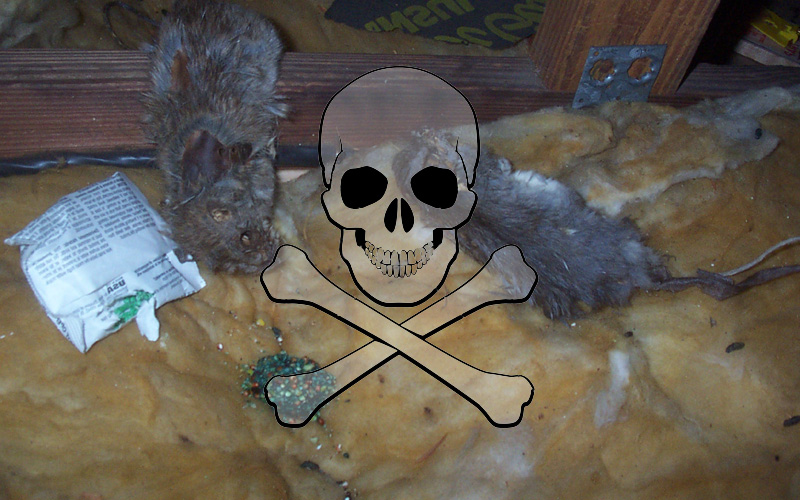- USA Wildlife Removal Education Guide and Resources
Rat Poison - Does It Work - Homemade Recipe

Rat Poison Analysis - There is no masking the fact that rat poison is a horrible and dangerous substance, and when it finds its way into the wrong place or is used too often in some areas, it isn't always the rats that suffer. There are many different types of rat poison available, and these will usually kill the animal in a variety of ways, so it is a tool that can be used to kill rats and other pest animals. Because of the range of poisons, it is important to understand how they work and how they will kill the rat, but it is important to know the limitations of each type of poison, and the dangers that they can pause to other animals and humans if they are misused.
Different Types Of Poison
The substances that can be used as rat poisons can vary quite significantly, and the way that they effect the rat, and any other animal that gets hold of the poison is important to note. Here are four of the most common types of rat poisons that are in use at the moment.
- 1. Bromethalin This is a fairly modern addition to the range of rodenticides that you will commonly find in your hardware store, but it is a poison that can take several days to kill the rat. This basically works by preventing the production of a key molecule in the body, which leads to an intracranial pressure which ultimately ends with a painful death which will include convulsions and paralysis as the pressure within the brain becomes unbearable.
- 2. Anticoagulant Poisons As the name of this family of rat poisons suggests, anticoagulant poisons work by preventing the blood of the rat from coagulating normally, but the problem with this particular process is that this can take quite some time to take effect. Many people will be familiar with warfarin, and the delicate balance of using this anticoagulant in the human body. Essentially, what these poisons do is to cause the bursting of capillaries over several days, eventually leading to the rat to collapse and die, several days after it took the lethal dose of the poison.
- 3. Zinc Phosphide One of the plus sides of using zinc phosphide is that the strong scent of the poison, often compared to garlic or similar bulbs, doesn't repel rats but isn't particularly attractive to other animals, which reduces the chances of animals becoming collateral damage in the poisoning. Once eaten by the animal, it reacts in the stomach to create phosphine gas, which is toxic and then kills the animal. Because of the way this works, there is a smaller chance of those animals that feed on rat carcasses from getting secondary poisoning from zinc phosphide.
- 4. Vitamin Based Poisons This group of rat poisons essentially works by increasing the amount of calcium that is retained in the body of the animal, eventually leading to death by hypercalcemia. This causes a build up of the mineral in the animal's blood, kidneys, stomach and lungs, with most rats dying around a week after eating the lethal dose of the poison. In some cases, these poisons can be used in conjunction with anticoagulant to create a particularly ruthless poison bait.
The Problems With Using Rat Poison
There are several factors that need to be considered when you look at using rat poisons, but one of the biggest problems with this resolution to a rat problem is that it can also affect other animal species if ingested. Placing rat poison is not only likely to be attractive to the rats, but if other animals such as cats or dogs pass by they will also often be attracted to the scent of the poison, which is usually designed to smell like food. This is one of the main causes of collateral damage when using poison.
The other issue is the period of time that can pass between the rat eating the poison and the animal dying. Because this period is often several days, there is no guarantee that you will easily be able to locate the carcass, and unfortunately the myth that rats like to go outside to find water before death is not true in many cases. The carcass will often have attracted several other pest animals before it smells strongly enough for you to find it and dispose of it properly.
Alternatives To Using Poison
The best way to deal with a rat problem is to use lethal traps that quickly and efficiently kill the animal, and allow you to dispose of the carcass very quickly. There are many different types of trap available, and the most popular is the traditional snap trap mounted on a small piece of wood, which is still one of the most effective ways of killing rats. Try to avoid glue traps, as these do not kill the rat immediately, and you may encounter a live but stuck rat when you are checking on your traps.
Go back to the main Rat Removal page for more information about rat poison recipes, and why they are a terrible idea, and what the better alternatives are to poisoning rats.

